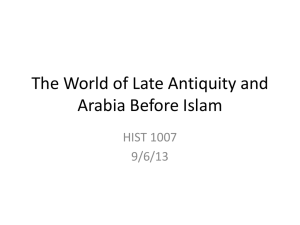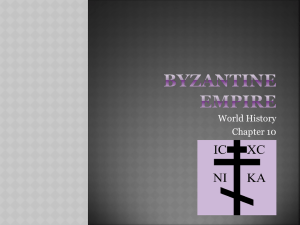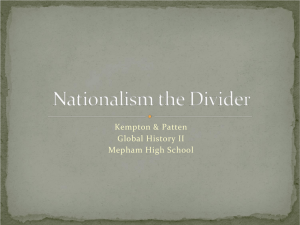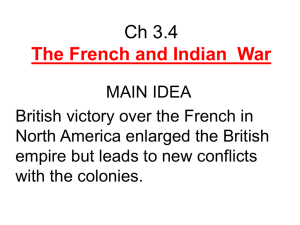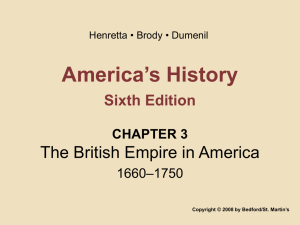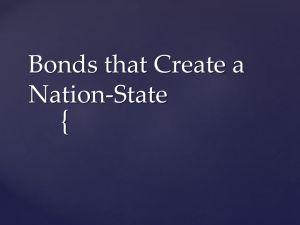A short history of the British Empire
advertisement
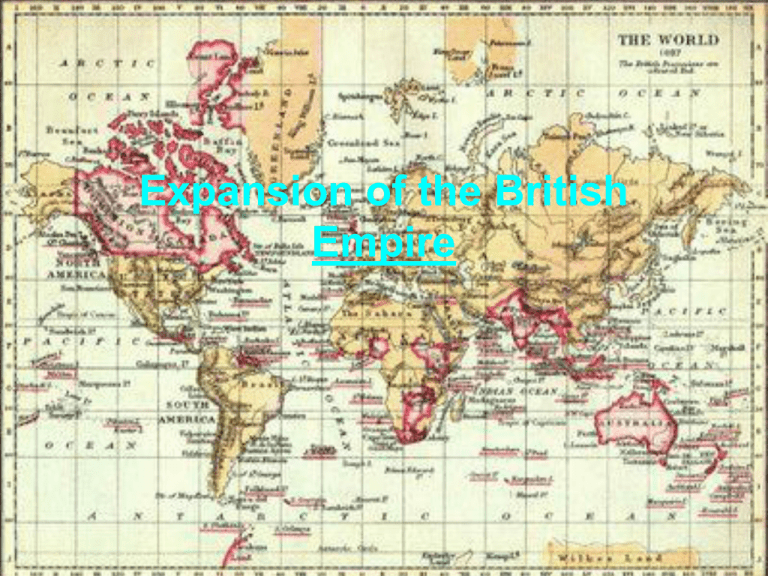
Expansion of the British Empire A short history of the British Empire • The British Empire was the largest empire in history and for a substantial time was the foremost global power. • by 1821, the British Empire held sway over a population of about 458 million people, approximately one-quarter of the world's population. It covered about 36.6 million km², about a quarter of Earth's total land area. • The British Empire has its origins in the XVI century during the reign of Queen Elizabeth I (1533 -1603) • After the victory (1588) of the English navy over the Spanish invincible Armada, England increased remarkably its maritime power. • This led to overseas trade and the setting up of the first settlements in North America. • England imported luxury goods and re-exported them at higher prices to the European countries which didn’t have a direct overseas trade. The Armada Portrait Portrait of Elizabeth made to commemorate the defeat of the Spanish Armada (1588), depicted in the background. Elizabeth's international power is symbolized by the hand resting on the globe. The Imperial Crown to her right also indicated England's growth as an international power during her reign. (George Gower, ca 1588). A short history of the British Empire • the rise, and successive growth, of the British Empire was mainly due to economic reasons. • with the Industrial Revolution the need for new markets and new sources of raw materials accelerated the expansion of the Empire. • When Victoria became Queen, Great Britain had settlements in: • Canada, • West Indies, • Australia, • New Zealand • Africa A short history of the British Empire • The years after Victoria’s ascent to the throne were characterized by the acquisition of new territories both in India and in Africa; • in 1876 Queen Victoria was officially proclaimed Empress of India Situation in India • In India the East India Company had established several trading posts since the beginning of the XVII century and … • in the second half of the XVIII century it started to conquer new territories. • England imported tea, cotton, wood and pepper from India and exported mainly cotton textiles and other finished products. • From 1857 India was ruled by a viceroy A short history of the British Empire Situation in Africa • British interests in Africa dated back to the XVII century when the Royal Africa Company provided slaves for the English colonies in the Caribbean islands. • But the real expansion in this continent started in the second half of the XIX century when a number of countries such as • Egypt, • Sudan, • Nigeria, • Kenya , • Uganda, • Rhodesia, • Zambia became part of the Empire. A short history of the British Empire • In 1899 the interests of the Empire clashed with those of the Boers in South Africa and caused the Boer war which lasted 3 years but eventually ended with the victory of Britain. • This conflict was caused by both economic and political reasons : the region was rich in diamonds and gold mines and the Boer authorities refused to grant civil rights to the British immigrants. The Empire in the XX century • During the first half of the XX century almost all the colonies turned into dominions, this implied that they acquired political independence from England



